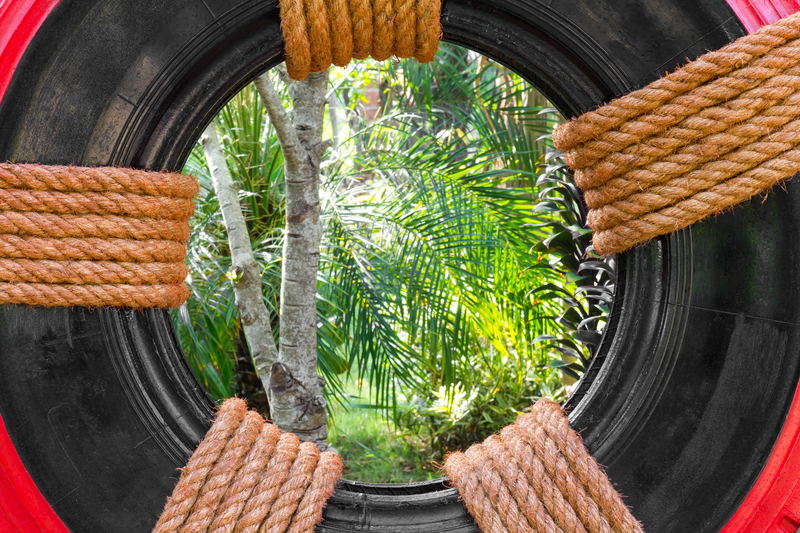Mastering the Eco-friendly Disposal of Pots and Pans
Pots and pans are essential kitchen gears that most households rely on daily. However, when these trusty cookware items reach the end of their usefulness, disposing of them sustainably becomes a crucial step towards a greener future. If you've ever wondered how to get rid of old pots and pans without harming the planet, you've come to the right place. This comprehensive guide will teach you everything you need to know about eco-friendly disposal methods, recycling options, creative repurposing techniques, and responsible donation avenues for cookware.
Why Eco-friendly Pots and Pans Disposal Matters
Millions of pots and pans are discarded each year, with many ending up in landfills, where they can take decades--or even centuries--to break down. Improper disposal not only wastes valuable resources but also contributes to environmental pollution and the depletion of materials that could otherwise be reused or recycled. By mastering the eco-friendly disposal of pots and pans, individuals can help reduce their carbon footprint, conserve materials, and support sustainable living.
Environmental Impact of Improper Cookware Disposal
- Landfill Overflow: Most pans and pots are made from metals or composites that aren't biodegradable.
- Resource Wastage: Throwing away cookware squanders metals like aluminum, stainless steel, and copper that are easily recyclable.
- Pollution: Nonstick and coated pans can leach chemicals into the environment if not handled properly.
- Missed Opportunities: Many components of discarded cookware can find new life through recycling or upcycling.

How to Determine When to Dispose of Pots and Pans Responsibly
Before you contemplate disposing of pots and pans, carefully evaluate whether they are at the end of their lifecycle, or if simple restoration, repair, or repurposing can extend their usefulness.
- Look for significant warping, corrosion, cracks, or loose handles.
- Check nonstick surfaces. If they are scratched, peeling, or releasing nonstick flakes, it's time to discontinue use for health reasons.
- Assess usability: If a pot or pan can't fulfill its intended function with safety and efficiency, disposal may be the best option.
Repair or Refurbish First
Minor scratches, loose handles, or discoloration can sometimes be fixed with a small investment. If your cookware can be repaired or revived, this is the best and most sustainable way forward. Otherwise, proceed to master the techniques for eco-friendly disposal.
Best Ways to Eco-friendly Dispose of Old Pots and Pans
Properly managing your old cookware minimizes environmental impact and can even benefit local communities. Below are the most effective solutions for eco-friendly pots and pans disposal:
1. Recycling Pots and Pans
Recycling is by far the most efficient method for eco-friendly disposal of pots and pans--especially when it comes to metal cookware. Most pots and pans contain valuable metals like aluminum, stainless steel, or cast iron that can be reused in new products.
- Contact Your Local Recycling Center: Many facilities accept metal cookware, but some may require handles or non-metal parts to be removed first.
- Separate Different Materials: Detach plastic, rubber, or wooden handles, and remove lids made from different materials.
- Clean Thoroughly: Wipe away any food residue, as contamination can interfere with the recycling process.
- Consider Scrap Yards: If standard recycling isn't available, local scrap yards often take pots and pans for metal recycling--sometimes even offering a small payment.
Tip: Some recycling facilities cannot accept pans with ceramic or Teflon coatings. It's best to call ahead and ask if your specific items are eligible.
2. Donating Old Pots and Pans
If your cookware is still in usable condition, donation is a fantastic means of eco-friendly pots and pans disposal. Many people and organizations can benefit from your gently used pots and pans.
- Charity Shops and Thrift Stores - Donate clean cookware to local thrift stores, who will resell them at low prices to those in need.
- Homeless Shelters and Food Banks - These organizations often need kitchen supplies for meal preparation.
- Community Centers and Churches - Ask if they accept kitchenware donations for their operations or to distribute to families in need.
- Online Community Groups - Post in local "Freecycle," Facebook Marketplace, or Buy Nothing groups. Many people are happy to reuse pots and pans.
Always ensure that the donated items are clean and safe to use. Avoid donating items with dangerous defects, heavily worn coatings, or loose handles.
3. Creative Repurposing and Upcycling
Before sending your old cookware to recycling or landfill, consider the creative possibilities for upcycling. Pots and pans have a sturdy construction and unique shapes that make them perfect candidates for DIY projects.
DIY Ideas for Old Pots and Pans
- Garden Planters: Old saucepans or frying pans make quirky, rustic planters for herbs and flowers.
- Bird Feeders: Hang old pans or lids to create bird feeders in your backyard.
- Decorative Wall Art: Paint or decorate frying pans and hang them as charming kitchen or garden art.
- Storage Solutions: Use deep pots as organizers for tools, crafts, or toys.
- Clock Crafts: Convert an old pan into a unique wall clock with a purchased clock-making kit.
Upcycling not only diverts waste from landfill but also injects character into your home and garden.
Understanding the Materials - Essential for Proper Disposal
The best method of eco-friendly pots and pans recycling often depends on the material composition of the cookware.
Stainless Steel and Aluminum Cookware
Both are highly recyclable materials. Scrap yards and recycling centers typically accept them, provided all non-metal parts are removed. Aluminum is particularly valuable and always in demand.
Cast Iron Cookware
Cast iron is built to last forever but may eventually crack or break. Recycling is possible, but due to its lifespan, consider passing it down or repurposing it if recycling is not convenient.
Copper Pots and Pans
Copper is one of the most valuable metals for recyclers. Ensure all lining and handles are removed and check with your local scrap yard for best disposal practices.
Nonstick (Teflon-Coated) Cookware
Many traditional nonstick coatings (like Teflon) complicate recycling because the chemical layers may need to be stripped first. If your nonstick pan is unsuitable for recycling in your area, prioritize donation or upcycling if possible. Never burn or incinerate Teflon-coated pans--it can release toxic fumes.
Ceramic, Enamel, or Glass Coated Cookware
These coatings make recycling challenging. Some centers accept them, but many do not due to the composite materials. Repurposing, donating, or seeking specialty recycling programs is often best.
Where to Recycle Old Pots and Pans Near You
Finding a suitable recycling solution may require a little research, but the effort makes a significant difference.
- Check Municipal Recycling Programs: Visit your local government or waste management website for information on metal recycling.
- Locate Scrap Metal Dealers: Many scrap yards accept household metal goods, including cookware.
- Look for Specialized Recycling Events: Community recycling days may accept mixed-material items that regular curbside programs reject.
- Retail Take-back Schemes: Some cookware retailers offer take-back or trade-in programs for old pots and pans when you buy new ones.
Key Tip: Always call ahead to confirm that your specific pots and pans are accepted, and ask whether special preparation is required.
Common Obstacles in Eco-friendly Cookware Disposal--and Their Solutions
Despite good intentions, sustainable disposal isn't always straightforward. Here are some common challenges with eco-friendly pots and pans disposal and practical solutions:
- Mixed-material Construction: Detach all plastic, wood, or rubber parts, as they aren't recyclable with metals.
- Damaged or Peeling Nonstick Pans: If recycling isn't available, prioritize upcycling, donation, or seek hazardous waste programs designed for household chemicals.
- Unaccepted Scrap Types: If your municipal center won't take cookware, try local scrap yards or search online for zero-waste businesses.
What Not to Do:
- Do not throw pots and pans in regular garbage, unless no other alternative exists.
- Avoid burning or incinerating cookware, especially those with nonstick coatings.
- Never dispose of cookware in nature or wild areas.

Choosing Sustainable Cookware for the Future
The best way to master eco-friendly pots and pans disposal starts even before purchase. Invest in long-lasting, eco-friendly cookware to reduce future waste and make end-of-life handling easier.
Sustainable Cookware Features
- Choose Uncoated or Easily Recyclable Metals - Stainless steel, cast iron, and copper are best for their durability and recyclability.
- Pick Brands with Take-back Programs - Some manufacturers now offer exchanges, recycling, or upcycling for old items.
- Look for Modular Designs - Cookware with replaceable handles and lids makes repair and recycling easier.
- Check for Non-Toxic, Natural Coatings - Avoid pans with hazardous or mixed-material coatings.
Conclusion: The Path to Zero Waste in Your Kitchen
Properly disposing of old pots and pans is a meaningful step toward a sustainable household and a healthier planet. Remember, waste is only waste if you waste it - and with a little care and creativity, cookware can be revived, upcycled, donated, or recycled instead of buried in a landfill.
- Repair if possible.
- Donate if usable.
- Upcycle creatively.
- Recycle responsibly.
- Shop sustainably for future cookware purchases.
By mastering the eco-friendly disposal of pots and pans, you set a positive example for others and contribute to a cleaner, greener world--one meal, one kitchen tool at a time.
Ready to make your kitchen eco-friendly? Start by looking in your cabinets today, and give your cookware a second life or a responsible farewell!